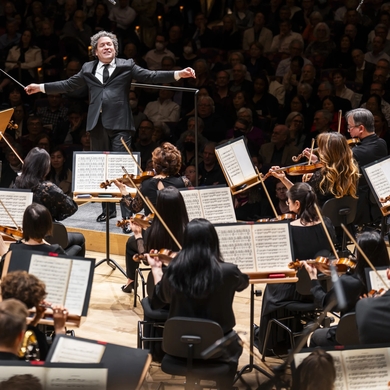There’s a four-note rising-and-falling motif at the top of Mahler’s death-haunted Symphony No. 9 that always suggests to me a broken gate swinging lazily at the threshold of eternity. Other symphonies of the master are “dramatic” in ways this one is not, or “shattering” or “rhetorical” in ways this one is not. Unlike four of the popular favorites, it excludes the sound of singing voices, whether solo or en masse. Composed in four movements unfolding over a span of 75 to 90 minutes depending on tempi, the Ninth invites a listener into realms of strangely sustained existential dispassion. There’s no overt “message,” but it sets us down in a place where we can perhaps start over. Will music like this resolve the Mideast crisis? Will any music do so? No. Yet the spiritual space Mahler clears for contemplation should bring balm to many. Kirill Petrenko conducts the Israel Philharmonic. —Matthew Gurewitsch
Arts Intel Report
Kirill Petrenko conducts Mahler Symphony No. 9

Kirill Petrenko
When
December 12, 2024
Where
HaNassi Blvd 138, Haifa, Israel
Etc
Photo: Chris Christodouloup
Explore More
Mar 19–22, 2026



